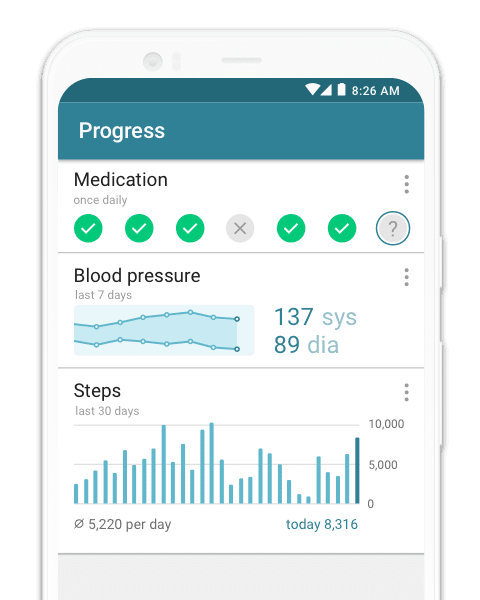Vitamins and vitamin supplements are used daily by millions, yet many people are unaware of the best practices when it comes to how and when to take them. Thanks to their over-the-counter availability and frequency in forms such as gummy bears, they’re often not thought of as “real” medications, but if taken improperly they can produce adverse effects. Read on to learn more about when you should be taking vitamins, and how to ensure you’re getting the most out of them safely.
The best time to take common vitamins:
B Vitamins
B vitamins are water-soluble, meaning they aren’t stored in fat. For this reason, most people who take them will take them daily. Due to the energy-boosting properties of B vitamins, it’s best to take them first thing in the morning, ideally on an empty stomach. Taking the vitamins later in the day may be alright, but taking them too close to bed may lead to insomnia or induce vivid dreaming.
Vitamin C
Vitamin C is another water-soluble vitamin that will not be stored in the body. Unlike B vitamins, you can take these any time of the day. Vitamin C is present in a variety of plants, but especially fruit such as oranges or lemons, making it easier to consume without supplements than other vitamins.
Prenatal Vitamins
If you’re wondering when to take prenatal vitamins you could be wondering about the time of day or the time during pregnancy. For the sake of thoroughness, we’ll quickly cover both. If you’re planning to try and conceive you should already begin taking prenatal vitamins, it’s never too early to start once you’ve begun the process of pregnancy. You can read more about specific recommendations here. As for the time of day, it’s best to take them right before lunch to ensure everything in them is absorbed properly. However, prenatal vitamins can affect people differently, if you find yourself feeling sick after taking them, try taking them after waking up or before going to bed. You can also experiment with taking them on an empty stomach vs with food. The most important part of taking prenatal vitamins is taking them consistently.
Vitamin D
Taking vitamin D with food can help to absorb it better. The most important consideration is timing, though. Vitamin D works inversely to the sleep hormone melatonin, so taking it late in the day or the evening could lead to insomnia.
Tips for taking vitamins properly:
There’s a wide range of practices that can help ensure you’re taking vitamins properly and covering your nutritional bases. By being mindful of them you can ensure you’re not opening yourself up to potential problems in the future. The first tip is to get as many of your necessary vitamins and minerals without taking supplemental vitamins (this one doesn’t apply to prenatal vitamins, you should take those anyways). Daily vitamin supplements in pill or powder form should never be the primary source of nutrition in your diet. You don’t need to do any serious planning but eating a balanced and healthy diet will cover most of your needs, if you need additional vitamins, supplements can help with the rest.
The next consideration and one often overlooked is possible interactions. We’ll cover some common interactions more in the next section but before taking any supplements it’s a good idea to first speak with your doctor. They’ll help inform you of any possible interactions to watch out for. People tend to assume vitamin supplements are so common that they can’t do any harm, but this isn’t always the case.
Unfortunately, vitamins in the US are not regulated by the FDA. This means that not all brands will be properly quality-checked. To ensure you’re only consuming safe and high-quality vitamin supplements look for brands that are verified by Pharmacopeia, NSF, or Consumer Lab. These three companies are reputable and will verify that the bottle contains what it advertises.
One final tip for people who struggle to maintain enough of the necessary vitamins in their body is to keep a log. In this log, you can include the foods you eat as well as the supplements you take. If you take this log along to your doctor’s appointment, they can spot any areas you could improve upon and make recommendations. A great tool for keeping track of both your medications and supplements, as well as providing a printable health report for your doctor, is the MyTherapy app. Click here to learn more.
Interactions to avoid when taking vitamins:
There are generally two main categories of vitamin supplement interactions, multivitamins (such as those containing vitamin D, B vitamins, and vitamin C) and prenatal vitamins. These two groups have different interaction lists and are listed below. However, these are not complete lists and you should speak with your doctor before taking any new vitamin supplements, especially if you’re already taking other medications.
Multivitamins
- Antacids
- Diuretics
- NSAIDs such as ibuprofen or naproxen
- Blood pressure medications
- Antibiotics
Prenatal Vitamins
- Multivitamins (You should never take prenatal vitamins within two hours of taking a multivitamin as this can lead to a vitamin overdose)
- Potassium supplements
- Calcium (You shouldn’t take prenatal vitamins with milk or other dairy products)
Here are some other articles we think you might enjoy:



